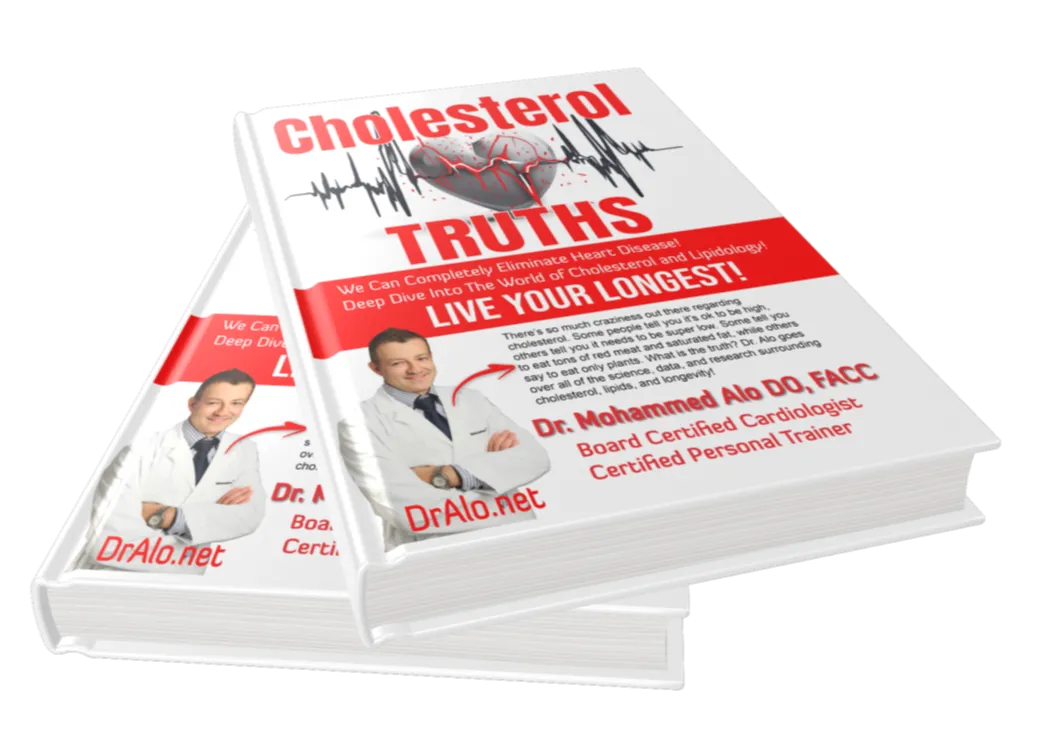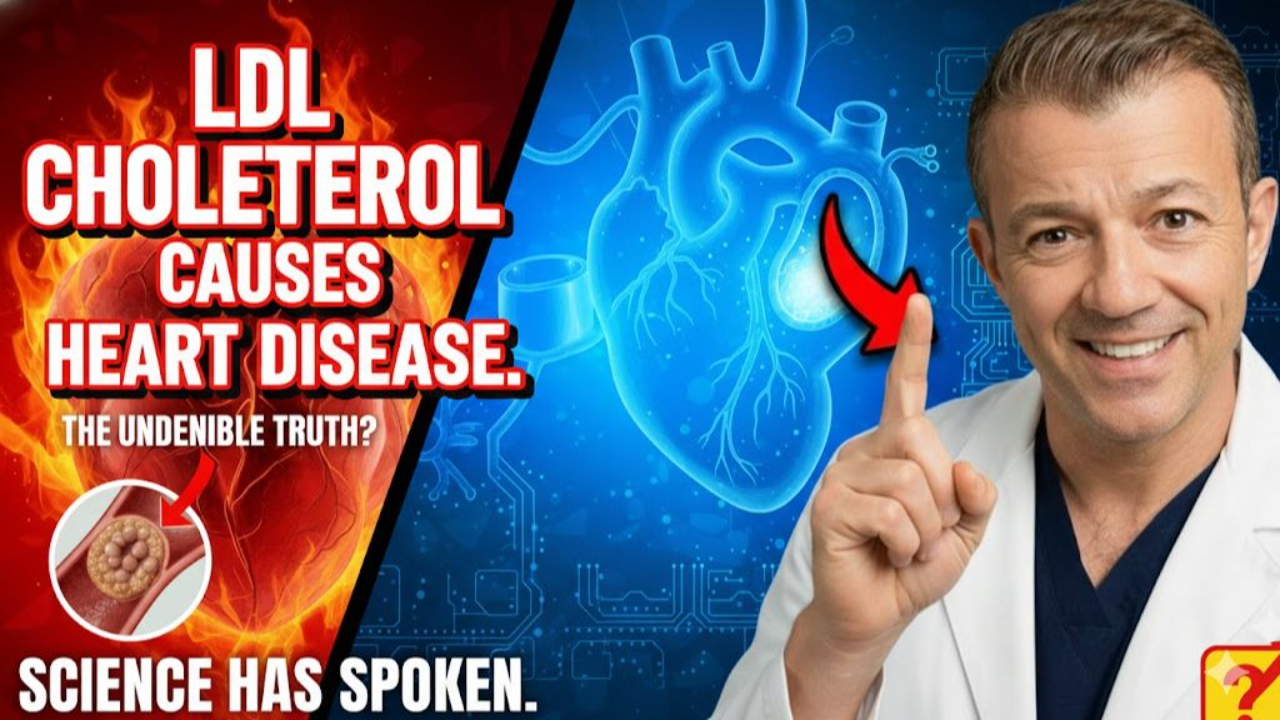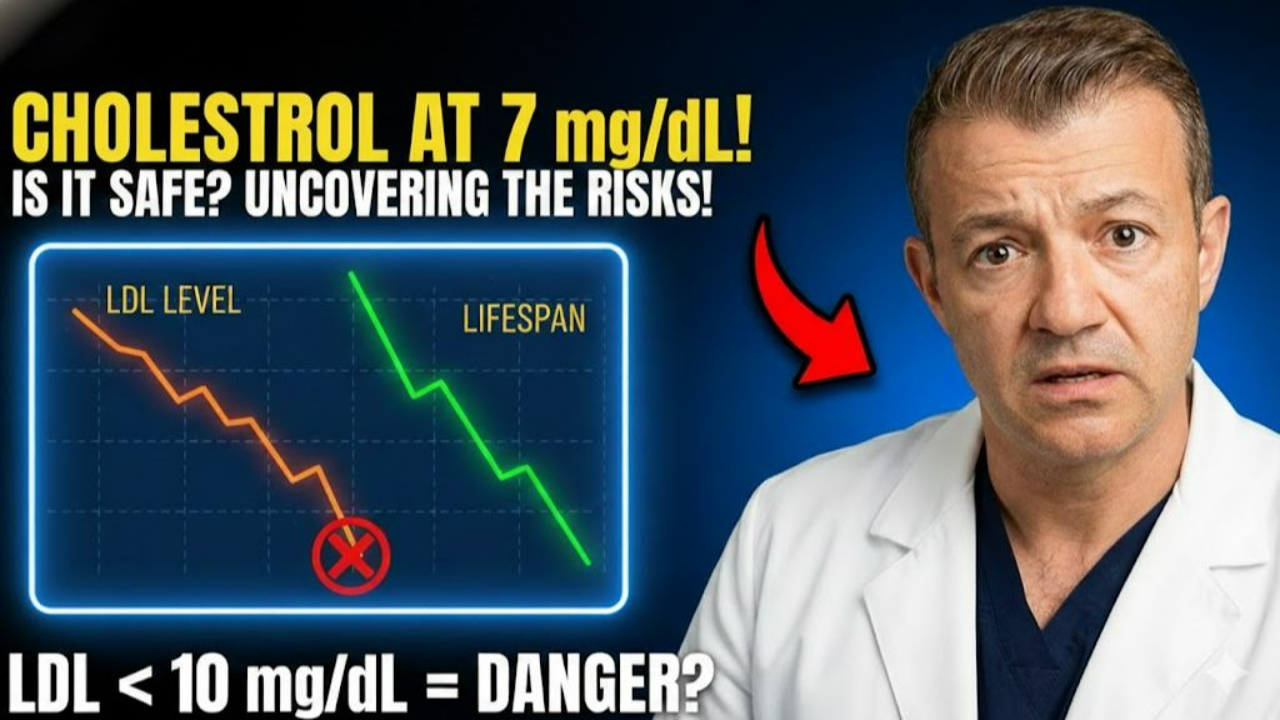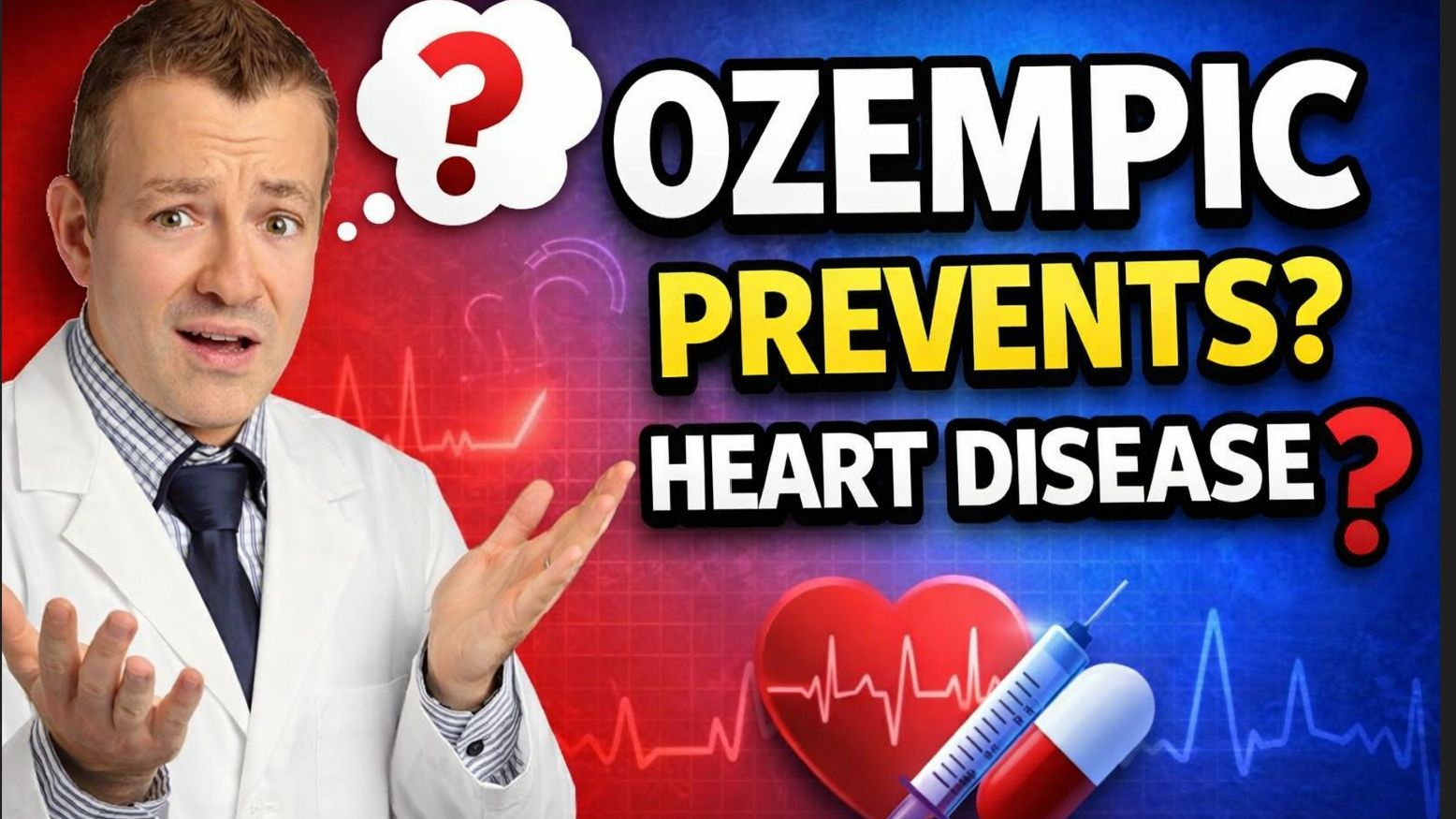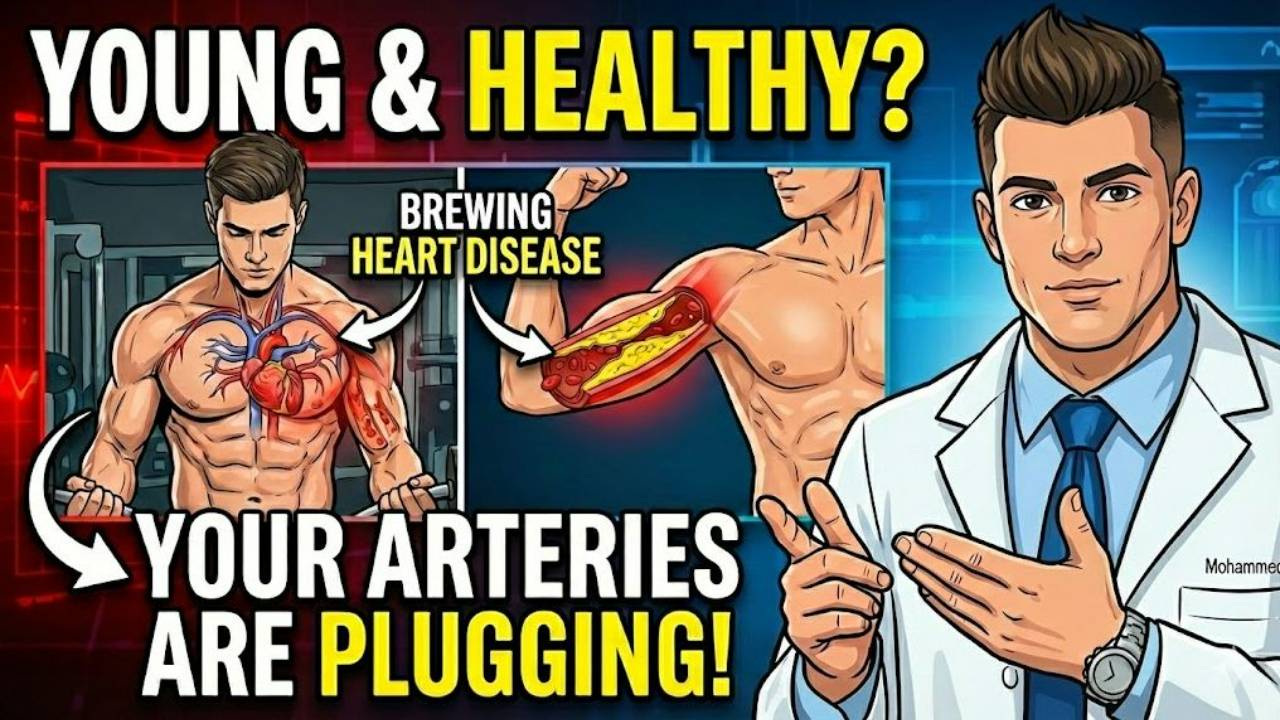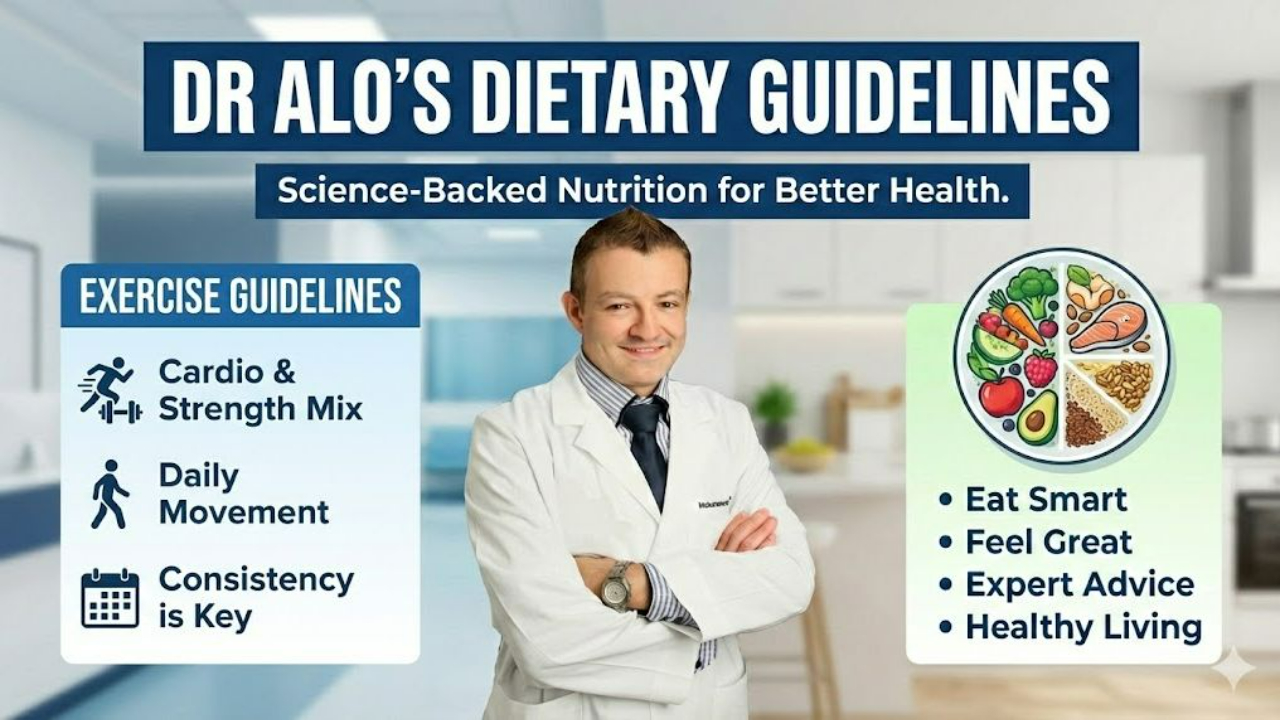Why "Metabolically Healthy" High Cholesterol Is Still Dangerous
Nov 23, 2022
Does LDL Cholesterol Particle Size Matter?
With so many people online being misguided by fitness influencers and non cardiologists, it's so important to actually discuss this.
Every day, on social media I get asked about whether or not LDL particle size or oxidation states matter. Usually, it's because they heard from someone that LDL size and oxidation state matter more than total LDL and traditional risk factors.
Cholesterol Size Doesn't Matter
Paul Saladino is Just Wrong about LDL Particle Size
You have these fitness influencers and medical doctors (not cardiologist) like Dr. Paul Saladino saying that insulin resistance and triglycerides matter more than LDL. He goes as far to say that high LDL is good for you as long as you are "metabolically healthy", whatever that means.
Dr. Paul Saladino is a non practicing psychiatrist that follows a crazy diet of eating raw testicles, other raw organs, and only meat. This is who they are getting their dietary advice from.
Saladino goes on to say that his total cholesterol is over 400 and that he couldn't be happier. He says that he talks to his doctor about it and that his doctor is ok with it. Which is ridiculous that a physician would actually say that. It's more likely that he is lying. This is a bizarre claim given that cholesterol and LDL being that high will almost always give you a heart attack or stroke.
Time and time again, studies have shown that high cholesterol and high LDL cause atherosclerotic heart disease. This is based on the consensus statement of the European Atherosclerotic Society Consensus Panel. (https://pubmed.ncbi.nlm.nih.gov/28444290/)
The conclusion, verbatim from their published data:
Conclusion: Consistent evidence from numerous and multiple different types of clinical and genetic studies unequivocally establishes that LDL causes ASCVD.
LDL Basics
Without getting overly scientific and diving too deep into lipid metabolism and function, it's good to have some background information on why this discussion is even taking place.
Low-density lipoprotein (LDL) is a type of cholesterol-carrying particle that is often referred to as "bad cholesterol". LDL particles come in various sizes. In the past, research has suggested that the size of LDL particles may be play an important role in the development of cardiovascular disease in arterial walls. The thought was that these smaller particles increase your risk of heart disease because they can get into the walls easier. They also used to think that "big fluffy" LDL particles could not get into the walls and cause harm.
LDL Particle Size and LDL Oxidation
LDL particles can be classified as either large or small. Large LDL particles are generally considered less harmful than smaller, dense LDL particles because they are less likely to accumulate in the walls of the arteries and form plaque. Plaque is a buildup of cholesterol, fat, and other substances in the arteries that can narrow or block the flow of blood. Small, dense LDL particles are said to be oxidized. We will discuss if this matters in a bit.
LDL oxidation state is still not very well understood. LDL can go back and forth in oxidation state. Hence, if you measure it now, it can change ten minutes later. It is not as reliable as getting a straight LDL number (or direct LDL). (https://pubmed.ncbi.nlm.nih.gov/20816951/, https://pubmed.ncbi.nlm.nih.gov/9470066/, https://pubmed.ncbi.nlm.nih.gov/15467487/, https://pubmed.ncbi.nlm.nih.gov/18091649/,)
The conclusion of all of these studies is that while oxidized LDL may be more atherogenic, we really don't know and there is on-gong research in this area. What we absolutely know is that LDL by itself causes ASCVD, without question. Which is why using LDL by itself is far more useful, more predictive, and a more accurate assessment of your overall cardiovascular risk.
Small LDL Particle Size
It was previously thought that small LDL particles are more dense and more likely to accumulate in the walls of the arteries, increasing the risk of cardiovascular disease. Some research suggests that individuals with high levels of small, oxidized LDL particles may have a higher risk of heart attack and stroke compared to those with larger, fluffier LDL particles. But as discussed above, these haven't panned out after almost 70 years of research.
One study published in the Journal of the American Medical Association (JAMA) analyzed data from more than 27,000 participants and found that individuals with high levels of small LDL particles had a significantly higher risk of coronary heart disease compared to those with low levels of small LDL particles. (https://www.ncbi.nlm.nih.gov/pmc/articles/PMC2720529/, https://www.ncbi.nlm.nih.gov/pmc/articles/PMC2720529/, https://journals.plos.org/plosone/article?id=10.1371/journal.pone.0241993, https://www.ahajournals.org/doi/full/10.1161/hc4401.098490)
While these studies did show that smaller LDL particles did predict CAD with more sensitivity than just LDL-C, it was not worth the additional cost of testing and did not "rule in" many more people than a standard LDL-C did. They are good for research purposes, but add no additional data on a population wide analysis.
Another study published in the American Journal of Clinical Nutrition analyzed data from more than 10,000 participants and found that individuals with high levels of small LDL particles had a higher risk of coronary heart disease compared to those with low levels of small LDL particles. They concluded:
In a large community-based sample, LDL-P was a more sensitive indicator of low CVD risk than either LDL-C or non-HDL-C, suggesting a potential clinical role for LDL-P as a goal of LDL management.
This means that total particle number (a different type of analysis than size) was better at determining who was low risk, rather than who was higher risk.
https://www.ncbi.nlm.nih.gov/pmc/articles/PMC2720529/
A lot of this is just noise and just sounds good in sound bites, but has little clinical application. If you want to reduce your cardiovascular risk, you need to lower your LDL-C overall.
How Can You Reduce LDL Size?
There are several factors that can influence LDL particle size, including genetics, exercise, diet, and lifestyle. For example, a diet high in saturated fat and trans fat has been shown to increase the number of small LDL particles in the blood. On the other hand, a diet rich in polyunsaturated fats, such as those found in nuts, seeds, and fatty fish, has been shown to increase the number of large LDL particles. The problem is we don't know how long lived or how long lasting these changes are. Do the particles shrink or enlarge and stay that way? The research isn't clear on this and is still evolving.
In addition, physical activity has been shown to decrease the number of small LDL particles and increase the number of large LDL particles. We know that exercise, over time, can help reduce the risk of myocardial infarction, hypertension, and diabetes mellitus at all LDL levels without regard to size.
The takeaway is to exercise and do whatever it takes to reduce your total LDL, and not worry about size, because LDL-C is still the single best predictor of cardiovascular outcomes, and actually causes CAD in and of itself.
Red Meat and LDL Particle Size
Clinical trials have also shown that red meat always increases cholesterol (no study has shown that red meat reduces cholesterol) and that these patients have the highest amount of plaque in their artery walls.
We also know that people with a genetic mutation that eliminates the LDL receptor, live the longest. We have actually created medications to mimic this mutations (PCSK9 meds). They work very well knocking LDL levels down to below 30.
We also know from research that lifestyle changes that cause a reduction in LDL number (not size) actually improve heart health outcomes and reduce cardiovascular and all cause mortality. The beneficial effects of a low LDL can be realized with low saturated fat , and other low-fat diets.
How to Measure LDL Size?
Measuring LDL particle size is not typically part of a routine cholesterol test. However, some specialized laboratories offer LDL particle size testing as an additional service. This is usually called NMR or fractionation. But it may be called different things in different labs.
While LDL particle size has been shown to matter in research and in risk stratifying a small group of patients with unusually higher risk than others, it has not been proven over time to matter as much as total LDL.
Total LDL Matters More
If we have learned anything in the last 100 years, it's that a basic LDL-C number (total LDL) is the most tried and true and most reliable and simplest risk factor for heart disease. In the research article titled, LDL particle number and size and cardiovascular risk: anything new under the sun?, the authors did an extensive overview of the data on LDL total and size. They concluded:
"LDL particle size, on the other hand, has not been independently associated with CVD risk after adjustment for other risk factors such as LDL cholesterol, triglycerides, and HDL-C and that routine use of information pertaining to particle size to determine and manage patients' risk is not yet justified."
In conclusion, while LDL particle size may be an important factor in the development of cardiovascular disease for research purposes, it's not yet justified to check this routinely. It simply isn't as reliable, as available, and as accurate or helpful. Individuals with high levels of small LDL particles may be at an increased risk of heart attack and stroke compared to those with large LDL particles. Factors such as diet and lifestyle can influence LDL particle size, and maintaining a healthy diet and engaging in regular physical activity may help to promote the formation of large LDL particles.
With that said, particle size should not play a role in risk stratifying patients at risk for heart disease. We should still be using the traditional indices and risk factors like; total HDL cholesterol, LDL number, total cholesterol, high blood pressure, metabolic syndrome, and standard LDL levels. There is no reason to get fancy testing for 99% of people.
Research has shown that lifetime exposure to high LDL that has been shown to cause heart disease and atherosclerosis. You don't need fancy tests to check LDL. A standard lipid panel will do.
If you have an LDL over 130 with risk factors, please talk to your doctor about strategies to lower your LDL!
Grab my Actual Weight Loss book for more leading edge weight loss and heart health advice!
Grab my Mediterranean Diet Calorie Based Weight Loss Cookbook!
Join my Heart Healthy Community to discuss personalized health advice.
References:
- Davidson, M. H., Peters, J., Maki, K. C., Rader, D. J., Cohen, J., Karas, R. H., & Bravata, D. M. (1999). Comparison of the LDL particle size distribution in men and women with and without coronary artery disease. JAMA, 281(6), 545-551.
- de Graaf, J., Visseren, F. L., Kastelein, J. J., & van der Wal, A. C. (2003). Low density lipoprotein subclass patterns and the risk of coronary artery disease: the EPIC-Norfolk prospective population study. American Journal of Clinical Nutrition, 77(3), 512-519.
- Mensink, R. P., & Katan, M. B. (1992). Effect of dietary fatty acids on serum lipids and lipoproteins. A meta-analysis of 27 trials. Arteriosclerosis and Thrombosis, 12(8), 911-919
- Janie Allaire 1, Cécile Vors, Patrick Couture, Benoît Lamarche (2017). LDL particle number and size and cardiovascular risk: anything new under the sun?
Still Have Questions? Stop Googling and Ask Dr. Alo.
You’ve read the science, but applying it to your own life can be confusing. I created the Dr. Alo VIP Private Community to be a sanctuary away from social media noise.
Inside, you get:
-
Direct Access: I answer member questions personally 24/7/365.
-
Weekly Live Streams: Deep dives into your specific health challenges.
-
Vetted Science: No fads, just evidence-based cardiology and weight loss.
Don't leave your heart health to chance. Get the guidance you deserve. All this for less than 0.01% the cost of health insurance! You can cancel at anytime!
[👉 Join the Dr. Alo VIP Community Today]



